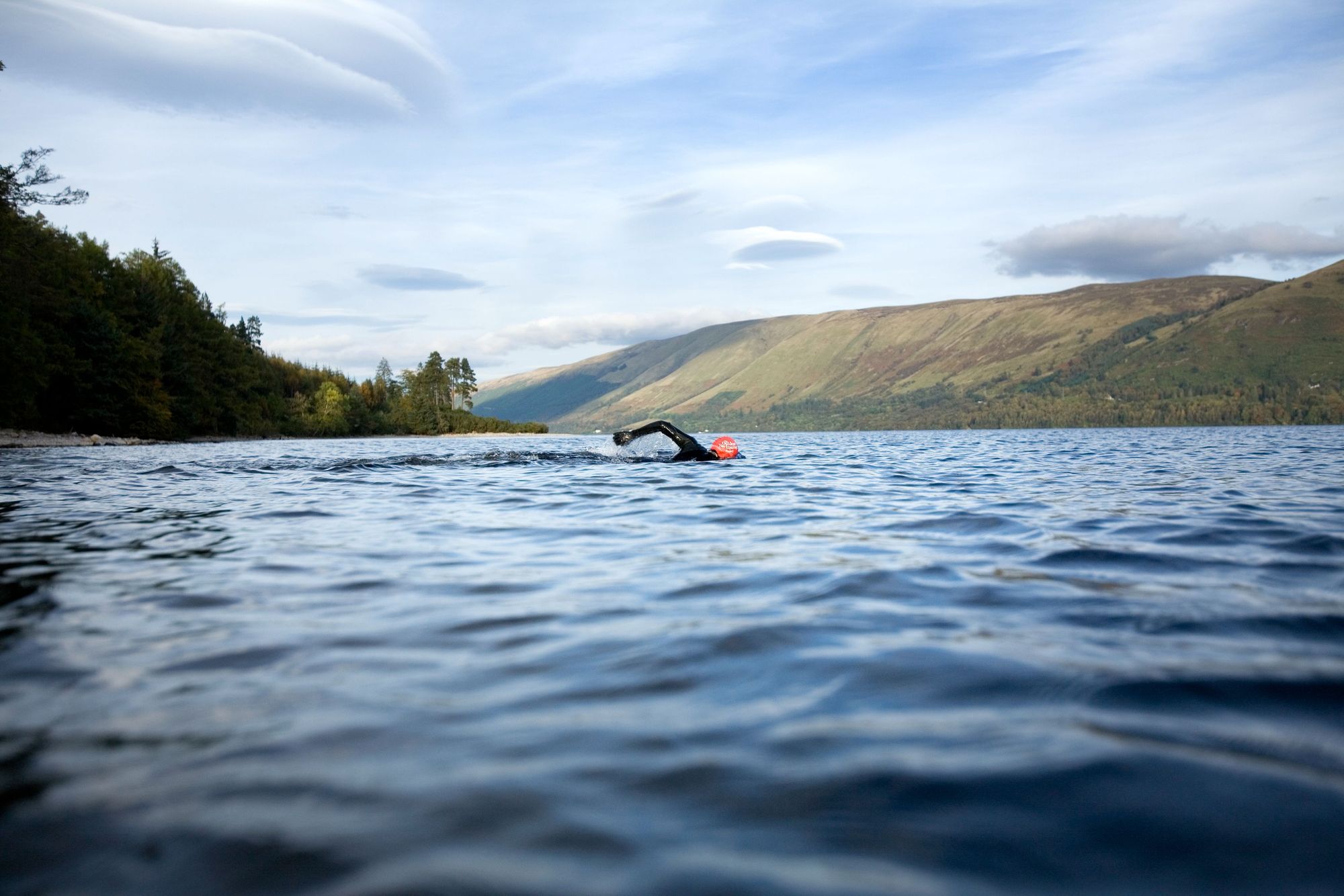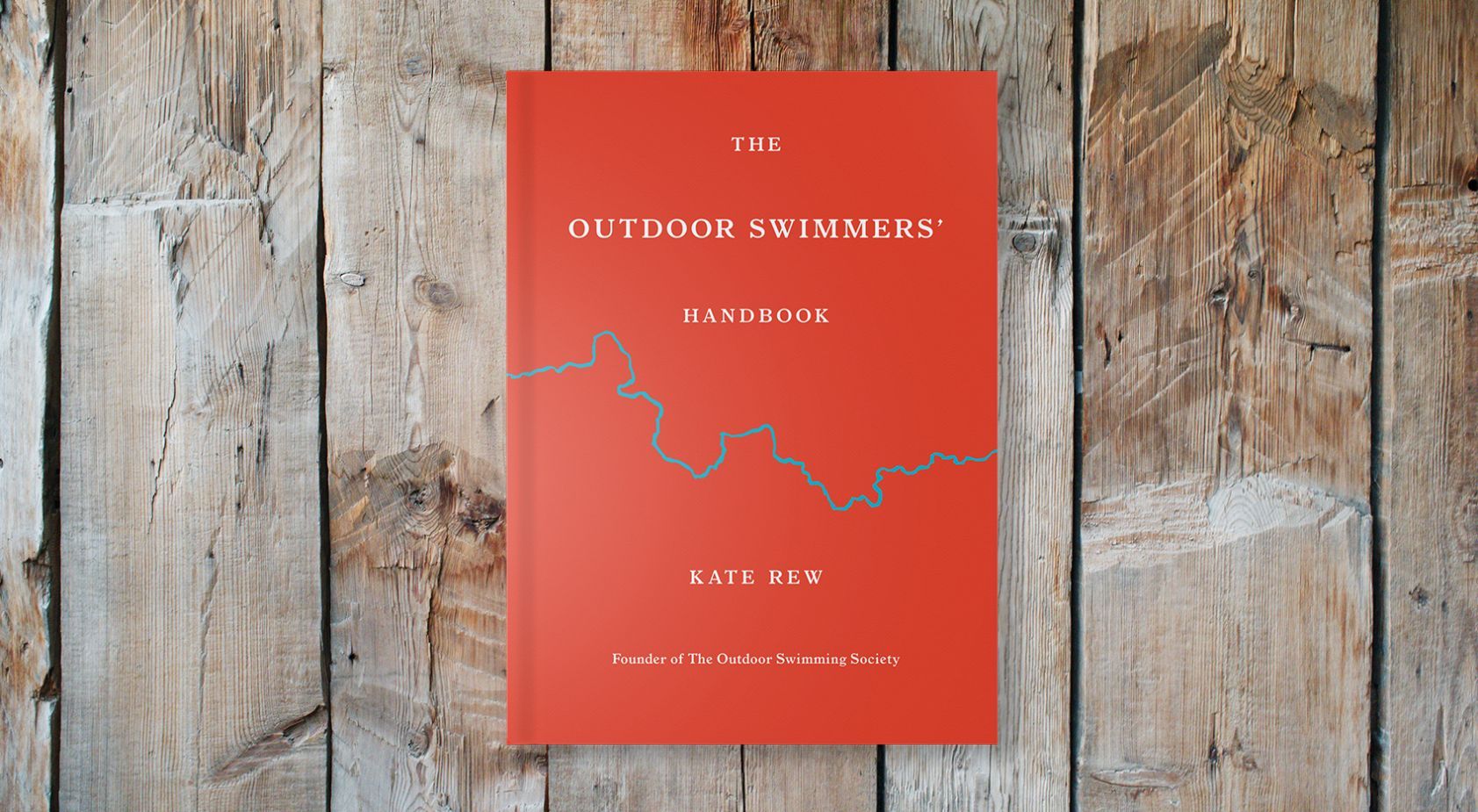People have always swum outdoors. In fact, the indoor pool is a modern invention - but in recent years, wild swimming has had a renaissance. Kate Rew is one of the people spearheading the revolution. In 2006, she set up The Outdoor Swimming Society (OSS), which has since expanded from 300 to over 100,000 members.
“Finding 300 people with the same desire to swim In. A. Lake. drew gasps of surprise and column inches from everywhere in Britain,” she writes in her new book The Outdoor Swimmers’ Handbook, describing one of the society's first events at Windermere.
The handbook is a fascinating compendium of knowledge that Kate has acquired over the past 16 years. Outdoor swimming, she explains, is a largely oral tradition, with one person passing on their knowledge and expertise to another.
“I have been doing what writers do: playing secretary to the world, listening in, listening out and writing it all down,” she explains.
The Outdoor Swimmers’ Handbook is, to use Kate’s own words, “both poetic and practical.” Chapters one to four are dedicated to understanding lakes, rivers, seas and estuaries respectively. They contain everything from musings on toponymy to species field guides for particular habitats.
‘Understanding Seas’ is a particularly useful chapter - Kate breaks down different types of waves and explains why and how they form. She also provides a comprehensive description of different tides and currents, alongside how one can navigate them to swim as safely as possible.

One of the most lyrically written chapters is ‘Understanding Cold’, which we anticipate will be of particular interest to readers in this era of Wim Hof mania.
“Cold is an adverse condition for humans; it hurts, it’s the opposite of what we spend our modern lives doing (getting comfortable). And therein lies the wealth: cold taps us back into our wild wordless selves,” she writes.

Part of the chapter is devoted to the “almost unquestioned ideology that cold water is good for you” - a statement that Kate, refreshingly, questions. Alongside careful use of anecdotal and research-based evidence to back up this assertion, she also points out some of the dangers of cold water immersion, including hypothermia. There’s advice on acclimatisation, and how to warm up afterwards. But best of all, Kate gives us permission not to enjoy the shock of the cold.
Colours fall out of the world, day slips into the water, and a rich inky-blue night slides in
“Some people find it deeply unpleasant [...] These people happily hang up their trunks after the summer and won’t be seen again until May,” she explains.
‘Night Swimming’ is a love letter to “the hour of the day when colours fall out of the world, day slips into the water, and a rich inky-blue night slides in, bringing with it a stillness, a quietness.” From practical pointers - such as how to be more visible in the water to poetic descriptions of moon bathing and bioluminescence, it’s pretty much guaranteed to inspire you to hit the water after dark.
If you’re ready to expand your horizons beyond your local beach or river, you’ll find the advise on planning a swim particularly useful. It covers how to conduct a DIY risk assessment, including restrictions on timing (due to tides), where you’ll enter and exit the water, and notes on ability levels within your group. How to find a place to swim is also covered, which is particularly useful in a climate of fraught access rights, where many swim spots feel like closely guarded secrets.
The Outdoor Swimmers’ Handbook is an accessible, knowledgeable guide to outdoor swimming. It is a brilliant balancing act between practical tips and a passion for the open water. Best of all, it emphasises the sport’s inclusivity; everyone, regardless of age or ability, is encouraged to try outdoor swimming. After you’ve finished reading it, you’ll be inspired to take the plunge too.
Inspired? Check out our full range of wild swimming adventures now!
This article contains affiliate links. Which basically means we make a little commission if you click through and buy something. It doesn’t cost you anything, and it just means we can do more good things in good places.



